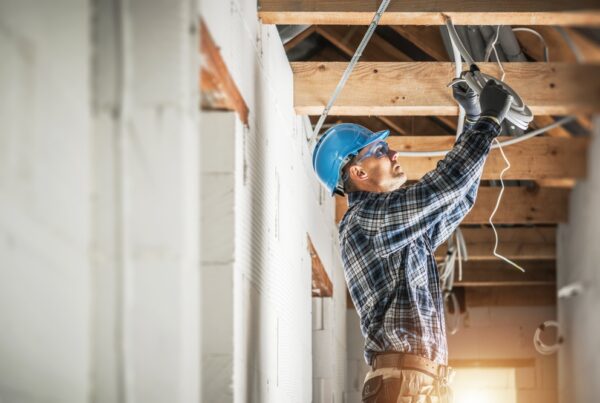Often noisy tenants in a strata property can be a nuisance when most residents are trying to enjoy some peace and quiet. If they are causing angst, here are some ways you can try to help solve the issue.

Common types of noise in strata that can give rise to complaints:
- Flooring: Noise generated from hard floors is one of the greatest sources of complaint within residential apartments. Poorly installed and noise insulated flooring may mean your downstairs neighbour can hear your every footstep
- Neighbourly noise: Noise generated from general living activities such as TV, music, extra loud talking or music, pets, air conditioning, or late-night parties.
- Building work: Noise generated from building works inside a unit such as a kitchen renovation.
- Noisy children: Unsupervised children playing on common property or in the pool outside of authorised times.
How to deal with noisy tenants in a strata property
If an owner in a strata property is renting out their property to noisy tenants and communication from you/their agents hasn’t helped, you may approach the owner directly for assistance in mediating matters with the tenants.
You can find out if they have a tenancy agreement in place. Ideally, the tenancy agreement should outline the responsibilities and guidelines for tenants. Also, the owners or property managers are required to provide a copy of the by-laws to the tenants within two weeks of moving in so they’re aware of the do’s and don’ts whilst living in the strata property.
You can ask for help from the body corporate manager or committee to send formal letters to communicate the concern to the owners in writing and record the instances of the noise occurrences for future reference. If the tenants are consistently breaching the by-laws, your committee can issue the owners or landlords with a notice of breach, as well as contravention notices.

What to do if you feel threatened by noisy residents?
If peaceful talks with the perpetrator and mediation doesn’t help, you may need to take up the matter with the council or the local police who generally govern noise regulations. Prior to engaging the authorities however, it is recommended that you keep a log of the times and dates when the noise issues occur.
Should any person feel threatened by the noise and/or language (i.e. swearing, threats or abuse) you should report it to the local police immediately by calling 000. Noise abatement orders can be issued, and fines can be imposed if breaches of these orders occur.
What if the strata by-laws don’t mention issues around noise?
If the by-laws are insufficient or lacking clarity on noise related matters, they can be amended. Residents may file a motion to be included in a general meeting or they may work with the body corporate to pass a special resolution to have the by-laws amended.
Four ways on how to deal with noise complaints in strata
It is always recommended to discuss day-to-day issues among the parties involved first, and if that fails, approach the committee to act. However, if the noise is unreasonable and temporary, such as noise emitting from a party, or you have been unsuccessful with other avenues, here are some other authorities that can also assist with unreasonable noise.
Adjudication
If all the above steps have failed, a noise abatement order can be applied for from the relevant state governing body (VCAT, NCAT, QCAT). If breaches of these orders continue to occur, fines can be imposed. If the problem continues and there is a second breach within 12 months, the strata committee can apply to the state governing body for orders including that the disruptive resident pay a fine to the body corporate.
Make a noise compliant to the police
If the louder-than-acceptable noise is occurring at night, you are entitled to call the police who have the power to issue a Noise Abatement Direction if they are satisfied the noise is obtrusive and offensive. Once issued, the Noise Abatement Direction must be obeyed immediately, and the offender cannot breach the direction for the following 28 days.
Make a noise compliant through The Environmental Protection Authority (EPA)
The Environment Protection Act 1970 makes it an offence to cause unreasonable noise from any residential premises. Residential noise may be considered unreasonable at any time of the day, depending on its volume, intensity and duration, and the time, place and other circumstances in which it is emitted. The EPA works in partnership with local government, Police and Roads and Maritime Services to enforce noise control regulations. You may also be able to report neighbourhood noise issues to your state’s EPA office.
Make a noise compliant to the local council
Local councils can also act under the nuisance provisions of the Public Health and Wellbeing Act 2008. Councils are obliged to investigate noise nuisances. Under the Protection of the Environment Operations Act, councils can serve prevention notices on residents and business people requiring them to control offensive noise.









